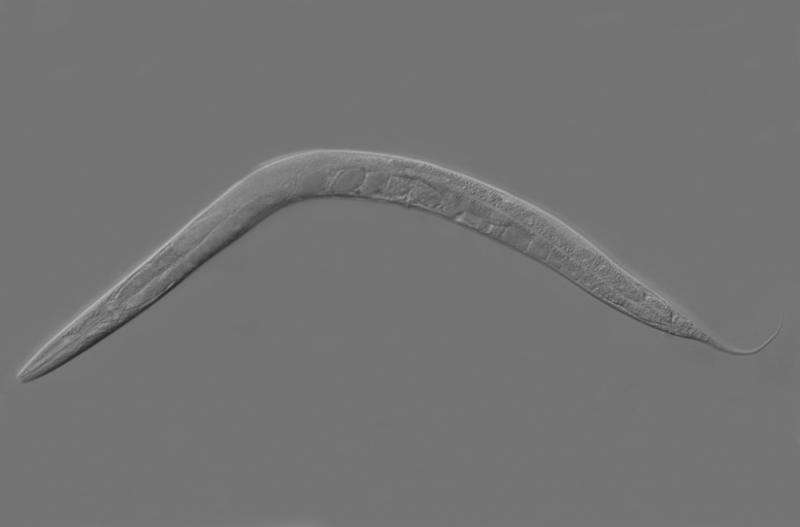Worm study sparks hope for slowing muscle decline

Muscle decline caused by ageing and certain diseases could be dramatically slowed by stopping a chain reaction that damages cells, new research shows.
The study revealed the previously unknown steps by which dysfunction of mitochondria—the so-called "powerhouses" of cells—harms muscle health and leads to atrophy (wasting away).
The research team, from the universities of Exeter and Nottingham (UK) and Tohoku University in Japan, showed that inhibiting various stages of this process suppressed muscle atrophy.
The research was carried out on a species of worm called Caenorhabditis elegans—recently used in a muscle study on the International Space Station because their muscle cells resemble those of humans.
"Mitochondrial dysfunction is a key feature of several muscle diseases, but treatments are currently limited," said Dr. Timothy Etheridge, of the University of Exeter.
"Our research shows that mitochondrial dysfunction causes calcium to build up in cells, which in turn activates enzymes that degrade collagen.
"Collagen is vital for giving structure to the outside of cells, so degradation of collagen destabilises muscle.
"In this study, we used experimental drugs to inhibit the enzymes that degrade collagen—and the results show this suppressed muscle decline caused by dysfunctional mitochondria.
"We found the same effect in worms used to model Duchenne muscular dystrophy, which causes severe muscle weakness."
More research is needed, but the findings raise the prospect of new therapies to delay muscle atrophy caused by ageing and conditions such as Duchenne muscular dystrophy.
More information: Surabhi Sudevan et al, Mitochondrial dysfunction causes Ca2+ overload and ECM degradation–mediated muscle damage in C. elegans, The FASEB Journal (2019). DOI: 10.1096/fj.201802298R


















